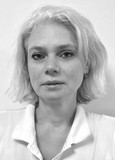Swimming as a Means of Personal Development of Students in the Educational Environment
Keywords:
development of collective qualities, swimming, physical activity, self-organization in swimming classes.Abstract
The problem of forming individual and collective qualities of students in the process of their education and upbringing occupies a central place in pedagogical and psychological research.
Particular attention is paid to physical activity as a tool for harmonious personal development. In this context, swimming is considered an effective means of forming key personal qualities.
Physical activity is a powerful factor in the development of personal characteristics such as purposefulness, self-control, and stress resistance. Regular sports activities improve cognitive abilities, develop emotional stability, and contribute to the formation of motivation for self-development.
The purpose of the study is to analyze the effectiveness of using swimming as a means of personal development in the educational environment. The study involved 60 students who participated in an experiment for a semester (12 weeks) at Rostov State University of Transport.
Humanities majors require the development of students' skills in interpersonal interaction, empathy, and communicative competence. Physical education, integrated into the educational process, stimulates the manifestation of qualities such as responsibility, mutual respect, and collectivism.
Swimming stands out among other sports for its versatility. Water-based activities contribute to the development of physical endurance, coordination of movements, and psycho-emotional stability.
Water creates unique conditions that reduce tension and increase concentration, which is especially important for students under intellectual loads.
References
Broun N. Swimming and its impact on psychological resilience // International Journal of Sports Psychology. 2020. Vol. 15. No.4. Pp. 345–360.
Grigan S.A., Nescheret N.N., Gvozdkova A.A., Pleskacheva O.V. The impact of physical culture and sports on the formation of moral and ethical qualities of students // Teoriya i praktika fizicheskoy kultury. 2025. No.1. Pp. 75–77.
Ivanova V.A. The impact of physical culture on mental health // Young Scientist. 2020. No. 47. Pp. 512–514. URL: https://moluch.ru/archive/494/108138/ (access date: 30.12.2024).
Sergeeva N.L. Psycho-physiological aspects of swimming // Physical Culture and Sports. 2021. No.3. Pp. 56–62.
Smirnov I.V. Physical activity and personal development // Bulletin of Pedagogy and Psychology. 2021. No.12. Pp. 34–42.

Additional Files
Published
How to Cite
Issue
Section
License
Copyright (c) 2025 Theory and Practice of Physical Culture

This work is licensed under a Creative Commons Attribution 4.0 International License.
